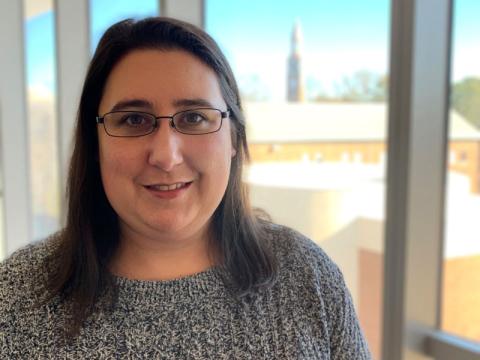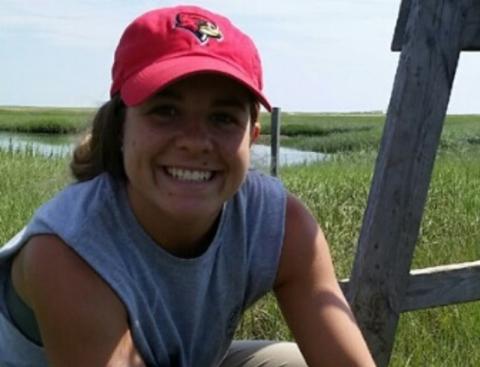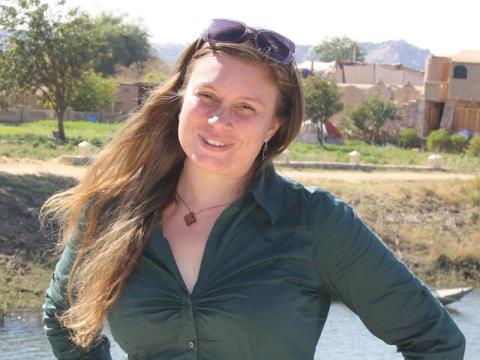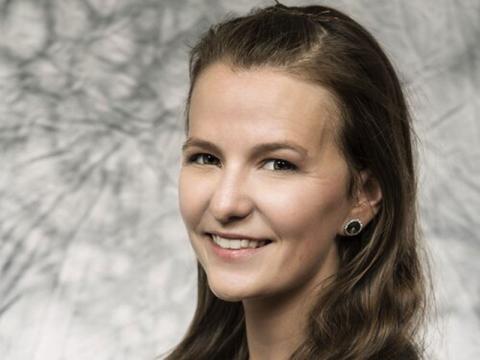Sönke Dangendorf is an Assistant Professor in the Department of River-Coastal Science and Engineering. Dr. Dangendorf has more than 12 years of experience researching mean and extreme sea levels, ocean tides, and storm surges and the impact on coastal flooding. He previously held positions as an “Akademischer Rat” at the University of Siegen, Germany, and as an Assistant Professor for Ocean and Earth Science at the Center for Coastal Physical Oceanography at Old Dominion University in Norfolk, VA. Dr. Dangendorf was a contributing co-author to the Special Report on the Ocean and Cryosphere in a Changing Climate (SROCC) of the Intergovernmental Panel on Climate Change (IPCC) and is currently a member of the NASA sea level science team. Dr. Dangendorf serves as an Editor of the Nature journal Scientific Data.
PUBLICATIONS
Garrett, E., Gehrels, R., Hayward, B., Newnham, R, Gehrels, M., Morey, C., Figueira, B., Dangendorf, S. (accepted): Drivers of 20th century sea-level change in southern New Zealand determined from proxy and instrumental records, J. Quaternary Research.
Piecuch, C.G., Coats, S., Dangendorf, S., Landerer, F.W., Reager, J.T., Thompson, P.R., Wahl, T.(2022): High-Tide Floods and Storm Surges during Atmospheric Rivers on the US WestCoast, Geophysical Research Letters
Kelln, J., Dangendorf, S., Gräwe, U., Steffen, H., Jensen, J. (2022): Entwicklung des mittleren Meeresspiegels entlang der südwestlichen Ostseeküste, Die Küste, (in German).
Dangendorf, S. Kelln, J., Arns, A., Gräwe, U., Steffen, H., Hofstede, J., Jensen, J. (2022): Untersuchungen your Rekonstruktion des Meeresspiegels und vertikaler Landbewegungen an den deutschen Küsten, Die Küste, https://doi.org/10.18171/1.091103 (in German)
Ezer, T., Dangendorf, S. (2021): Spatiotemporal variability of the global ocean since 1900: Testing a new analysis approach using sea level reconstruction, Ocean Dynamics, online first
Dangendorf, S., Frederikse, T., Chafik, L., Klinck, J., Ezer, T., Hamlington, B. (2021): Data-driven reconstruction reveals large-scale ocean circulation control on coastal sea level, Nature Climate Change, https://doi.org/10.1038/s41558-021-01046-1.
Ezer, T., Dangendorf, S. (2021): Variability and upward trend in the kinetic energy of Western Boundary Currents over the last century: impacts from barystatic and dynamic sea level change, Climate Dynamics, https://doi.org/10.1007/s00382-021-05808-7.
Frederikse, T., Adhikari, S., Dangendorf, S., Gehrels, R., Landerer, F., Marcos, M., Slangen, A., Wöppelmann, G. (2021): Constraining 20th century sea-level rise in the South Atlantic Ocean, J. Geophys. Res., 126, e2020JC016970.
Von der Pol, T., Hinkel, J., Merkens, J., MacPherson, L., Vafiedis, A., Arns, A., Dangendorf, S. (2021): Regional economic analysis of flood defence heights at the German Baltic Sea coast: A multi-method cost-benefit approach for flood prevention, Climate Risk Management, 32, 100289, https://doi.org/10.1016/j.crm.2021.100289.
Jänicke, L., Ebener, A., Dangendorf, S., Arns, A., Schindelegger, M., Niehüser, S., Haigh, I.D., Woodworth, P.L., Jensen, J. (2021): Assessment of tidal range changes in the North Sea from 1958 to 2014, J. Geophys. Res, 126, e2020JC016456.
Ezer, T. Dangendorf, S (2020): Global sea level reconstruction for 1900-2015 reveals regional variability in ocean dynamics and an unprecedented long weakening in the Gulf Stream flow since the 1990s, Ocean Science, 16, 997-1016, https://doi.org/10.5194/os-16-997-2020.
Frederikse, T., Landerer, F., Caron, L., Adhikari, S., Parkes, D., Humphrey, V., Dangendorf, S., Hogarth, P., Zanna, L., Cheng, L., Wu, H. (2020): Explaining the causes of sea-level rise since 1900, Nature, 584, 393-397, https://doi.org/10.1038/s41586-020-2591-3.
Gehrels, R.W., Dangendorf, S., Barlow, N.L.M., Saher, M.H., Long, A.J., Woodworth, P.L., Piecuch, C.G., Berk, K. (2020): Pre-industrial sea-level rise hotspots in the Northwest Atlantic Ocean, Geophysical Research Letters, e2019GL085814
Höffken, J., Vafeidis, A., McPherson, L., Dangendorf, S. (2020): Effects of the temporal variability of storm surges on coastal flooding, Frontiers in Marine Science, https://doi.org/10.3389/fmars.2020.00098
Haigh, I.D., Pickering, M., Green, M., Arbic, B., Arns, A., Dangendorf, S., et al. (accepted): The Tides They Are A-Changin’: A comprehensive review of past and future non-astronomical changes in tides, their driving mechanisms and future implications, Rev. in Geophys., online first
Dangendorf, S., Hay, C., Calafat, F.M., Marcos, M., Piecuch, C.G., Berk, K., Jensen, J. (2019): Persistent acceleration in global sea-level rise since the 1960s, Nature Climate Change, 9, 705-710
Piecuch, C.G., Dangendorf, S., Gawarkiewicz, G.G., Little, C.M., Ponte, R.M., Yang, J. (2019): How is New England coastal sea level related to the Atlantic meridional overturning circulation at 26°N?, Geophys. Res. Lett., https://doi.org/10.1029/2019GL083073
Piecuch, C., Calafat, F.M., Dangendorf, S., Jorda, G. (2019): The ability of barotropic model to simulate historical mean sea level changes from coastal tide gauge data, Surveys in Geophysics, https://doi.org/10.1007/s10712-019-09537-9
Gräwe, U., Klingbeil, K., Kelln, J., Dangendorf, S. (in press): Decomposing mean sea level rise in a semi-enclosed basin, the Baltic Sea, J. Climate
McPherson, L., Arns, A., Dangendorf, S., Vafeidis, A., Jensen, J. (in press): A stochastic extreme sea level model for the German Baltic Sea coast, J. Geophys. Res., https://doi.org/10.1029/2018JC014718
Chafik, L., Nilsen, J.E.O., Dangendorf, S., Reverdin, G., Frederikse, T. (2019): Increased role for ocean circulation on Northern European sea level over the past two decades, Nature Scientific Reports, 9, 1041
Vermeersen, B., Slangen, A.B.A., Gerkema, T., Baart, F., Cohen, K., Dangendorf, S. et al. (2018): Sea-level change in the Dutch Wadden Sea, Netherlands J. of Geosciences, 97-3, 79-127
Cazenave, A., Meyssignac, B., Ablain, M.,…, Dangendorf, S. et al. (2018): Global sea-level budget 1993-present, Earth System Science Data, 10, 1551-1590
Frederikse, T., Jevrejeva, S., Riva, R., Dangendorf, S. (2018): A consistent sea-level reconstruction and its budget on basin and global scales over 1958-2014, Journal of Climate, https://doi.org/10.1175/JCLI-D-17-0502.1
Visser, H., Dangendorf, S., van Vuuren, D.P., Bregman, B., Petersen, A.C. (2018): Signal detection in global mean temperatures after “Paris”: quantifying sources of uncertainty, Climate of the Past, https://doi.org/10.5194/cp-2017-88
Dangendorf, S., Marcos, M. (2018): A reconciled estimate of 20th century global mean sea level rise, Sea Level Rise (US CLIVAR Variations Letter), 16, 1
Chafik, L., Nilsen, J.E.O., Dangendorf, S. (2017): Impact of North Atlantic Teleconnection Patterns on Northern European Sea Level, J. Mar. Sci. Eng., 5, 43, doi:10.3390(jmse5030043
Santamaria-Gomez, A., Gravelle, M., Dangendorf, S., Marcos, M., Spada, G., Wöppelmann, G. (2017): Uncertainty of the 20th century sea-level rise due to vertical land motion errors, Earth and Planetary Science Letters, 473, 24-32
Wahl, T., Haigh, I.D., Nicholls, R., Arns, A., Dangendorf, S., Hinkel, J., Slangen, A. (2017): Understanding extreme sea levels for broad-scale coastal impact and adaptation analysis, Nature Communications, 16075, doi:10.1038/ncomms16075
Dangendorf, S., Marcos, M., Wöppelmann, G., Conrad, C., Riva, R.E.M., Frederikse, T. (2017): Reassessment of 20th century global mean sea level rise, PNAS, doi:10.1073/pnas.1616007114 (featured e.g. in Washington Post: https://www.washingtonpost.com/news/energy-environment/wp/2017/05/22/sc…, and by Climate Nexus: https://nexusmedianews.com/whats-really-driving-sea-level-rise-b1650e8f…)
Haigh, I.D., Marcos, M., Dangendorf, S., Calafat, F.M. (2017) Editorial: Sea level variability and change, Frontiers in Marine Science, https://doi.org/10.3389/fmars.2017.00046
Arns, A., Dangendorf, S., Bender, J., Talke, S., Pattiaratchi, C., Jensen, J. (2017): Sea-level rise induced amplification of coastal protection design heights, Nature Scientific Reports, 7, 40171
Niehüser, S., Wahl, T., Dangendorf, S., Jensen, J., Hofstede, J. (in press): Zum Einfluss möglicher Setzungserscheinungen am Leuchtturm Cuxhaven auf die Wasserstandszeitreihe, Die Küste
Marcos, M., Marzeion, B., Dangendorf, S., Slangen, A., Palanisamy, H, Fenoglio-Marc, L., (2016): Internal variability versus anthropogenic forcing on sea level and its components, ISSI book and Special Issue in Surveys in Geophysics, edited by: Cazenave, A., Beneviste, J., Jevrejeva, S.: Integrative study of the mean sea level and its components (appearing in December 2016), doi:10.1007/s10712-016-9373-3
Dangendorf, S (2016): Human influence on sea level rise, Nature Climate Change, doi:10.1038/nclimate2994 (invited News & Views Commentary from the Editorial Board)
Dangendorf, S., Arns, A., Pinto, J., Ludwig, P., Jensen, J. (2016): The exceptional influence of storm Xaver on design water levels in the German Bight, Environmental Research Letters, 11, 5
Piecuch, C., Dangendorf, S., Ponte, R., Marcos, M. (2016): Annual sea level changes on the North American northeastern coastline and the influence of local winds and barotropic motions, J. Climate, 29:13, 4801-4816
Marcos, M., Calafat, F. M., Berihuete, A., Dangendorf, S. (2015): Time varying trends in global sea level extremes, to be submitted to J. Geophys. Res., 120, 8115-8134 (Research Spotlight in EOS: https://eos.org/research-spotlights/tracking-long-term-changes-in-globa…)
Dangendorf, S., Marcos, M., Müller, A., Zorita, E., Riva, R.E.M., Berk, K., Jensen, J. (2015): Detecting anthropogenic footprints in sea level rise, Nature Communications, 6, 7849
Amiruddin, A.M., Haigh, I.D., Tsimplis, M.N., Calafat, F.M., Dangendorf, S. (2015): The seasonal cycle and variability of sea level in the South China Sea, J. Geophys. Res., 120 (8), 5490-5513
Visser, H., Dangendorf, S., Petersen, A.C. (2015): A review of trend models applied to sea level data with reference to the “acceleration-deceleration date”, J. Geophys. Res., DOI: 10.1002/2015JC010716
Arns, A., Wahl, T., Dangendorf, S., Jensen, J. (2015): Impact of sea level rise on storm water levels in the northern part of the German Bight. Coastal Engineering, 96, 118-131
Jensen, J., Dangendorf, S., Wahl, T., Steffen, H. (2014): Meeresspiegeländerungen in der Nordsee: Vergangene Entwicklungen und zukünftige Herausforderungen mit einem Fokus auf die Deutsche Bucht, Hydrology und Wasserbewirtschaftung, 58(4), 304-323
Chen, X., Dangendorf, S., Narayan, N., O’Driscoll, K., Tsimplis, M.N., Su, J., Mayer, B., Pohlmann, T. (2014): On sea level change in the North Sea influenced by the North Atlantic Oscillation: local and remote steric effects, Estuarine, Coastal and Shelf Science, doi:10.1016/j.ecss.2014.10.009
Dangendorf, S., Rybski, D., Mudersbach, C., Müller, A., Kaufmann, E., Zorita, E., Jensen, J. (2014): Evidence for long-term memory in sea level, Geophys. Res. Lett., 41, 15, 5530-5537 (Editors Highlight and Research Spotlight in EOS: https://eos.org/wp-content/uploads/2014/12/2014EO48_tabloid.pdf?453319%…)
Dangendorf, S., Calafat F.M, Arns, A., Haigh, I.D., Wahl, T., Jensen, J. (2014): North Sea mean sea level variability: processes and implications, J. Geophys. Res., doi:10.1002/2014JC009901
Haigh, I.D., Wahl, T., Rohling, E.J., Price, R.M., Pattiaratchi, C.B., Calafat, F.M., Dangendorf, S.(2014): Timescales for detecting a significant acceleration in sea level rise, NatureCommunications, 5, 3635.
Dangendorf, S., Müller-Navarra, S., Jensen, J., Schenk, F., Wahl, T., Weisse, R. (2014): North Sea storminess from a novel storm surge record since AD 1843, Journal of Climate, 27, 3582-3595
Arns, A., Wahl, T., Dangendorf, S., Mudersbach, C., Jensen, J. (2013): Ermittlung regionalisierter Extremwasserstände für die Schleswig-Holsteinische Nordseeküste,
Hydrology und Wasserbewirtschaftung, 57, 264-278 (in German, awarded with the students best paper award)
Müller-Navarra, S., Jensen, J., Rosenhagen, G., Dangendorf, S. (2013): Rekonstruktion von Gezeiten und Windstau am Pegel Cuxhaven 1843 bis 2013, Annalen der Meteorologie (in German)
Dangendorf, S., Wahl, T., Nilson, E., Klein, B., Jensen, J. (2013): A new atmospheric proxy for sea level variability in the south-eastern North Sea: Observations and ensemble projections, Climate Dynamics, online first
Dangendorf, S., Wahl, T., Muderbach, C., Jensen, J. (2013): The seasonal cycle of MSL in the south-eastern North Sea, Journal of Coastal Research, Special Issue No. 65, pp. 1915-1920, ISSN 0749-0208
Wahl, T., Haigh, I.D., Dangendorf, S., Jensen, J. (2013): Inter-annual and long-term mean sea level changes along the North Sea Coastline, Journal of Coastal Research, Special Issue No. 65, pp. 1987-1992, ISSN 0749-0208
Dangendorf, S., Muderbach, C., Jensen, J., Ganske, A. and Heinrich, H. (2013): Seasonal Forcing of high Sea Level Percentiles in the German Bight throughout the 20th century, Ocean Dynamics, 63 (5):533-548
Dangendorf, S., Muderbach, C., Wahl, T., Jensen, J. (2013): Characteristics of intra-, inter-annual and decadal variability and the role of meteorological forcing: The long record of Cuxhaven, Ocean Dynamics, 63 (2-3):209-224
Dangendorf, S., Wahl, T., Hein, H., Jensen, J., Mai, S., Mudersbach, C. (2012): Mean Sea Level variability and influence of the North Atlantic Oscillation on long-term trends in the German Bight, Water, 4(1), 170-195, doi:10.3390/w4010170
LAB GROUP
Dr. Qiang Sun (Postdoc)
Kayla Washington (Graduate Student, ODU)
Noah Hendricks (Undergraduate Student, ODU)









